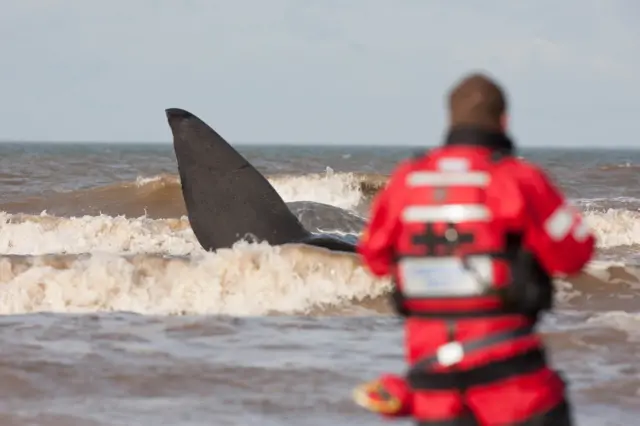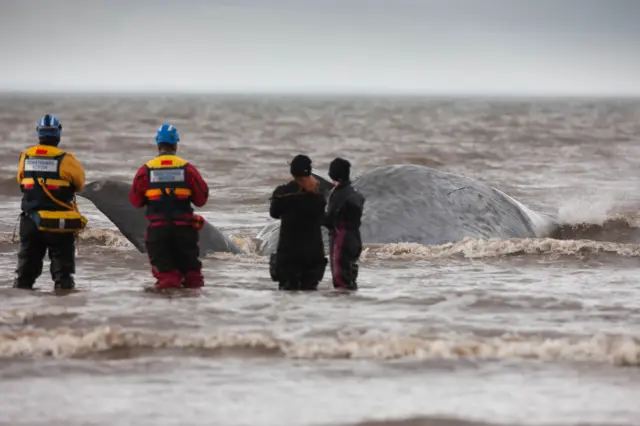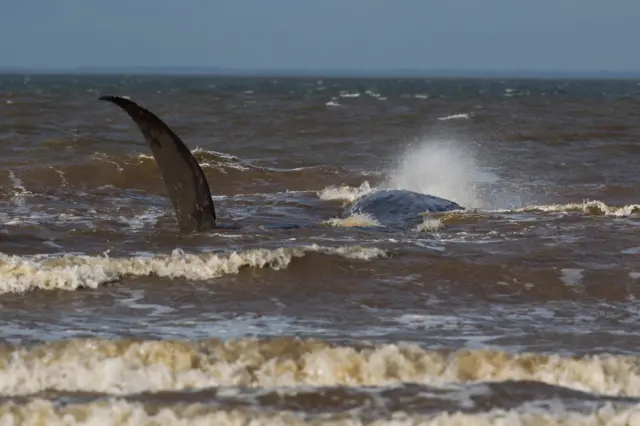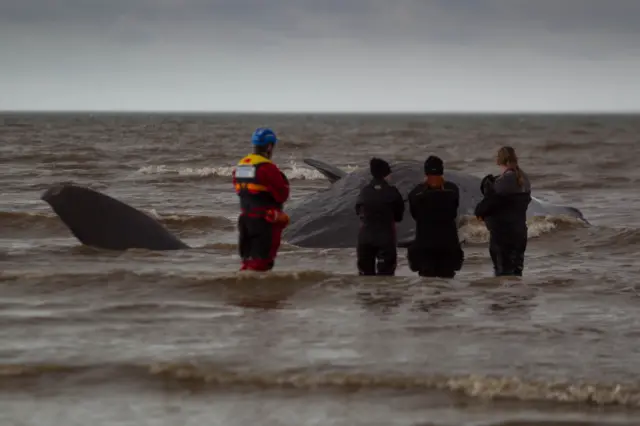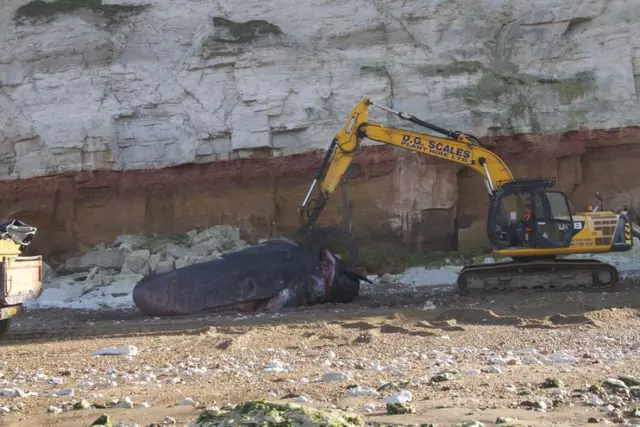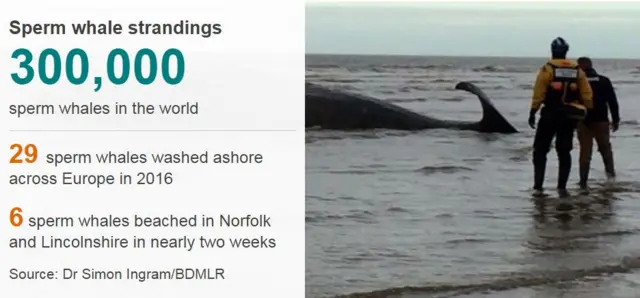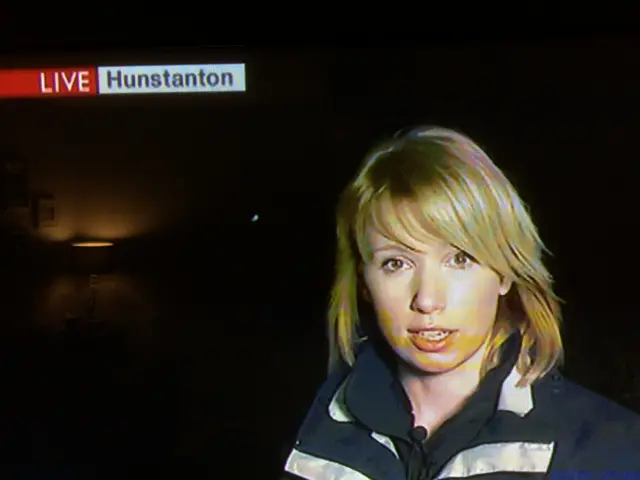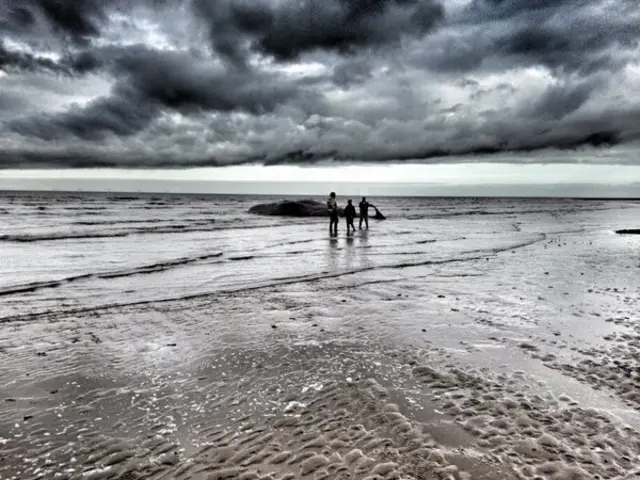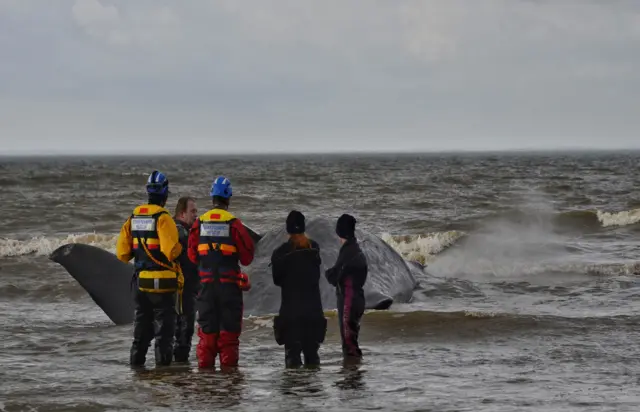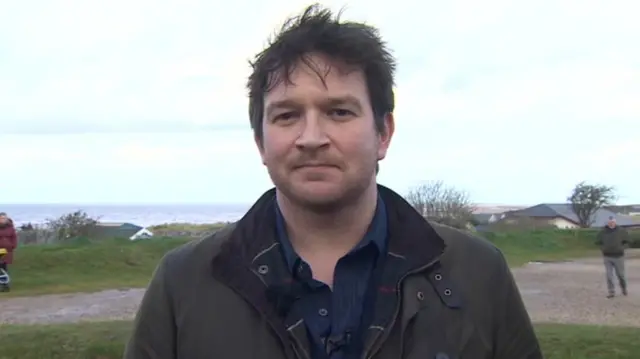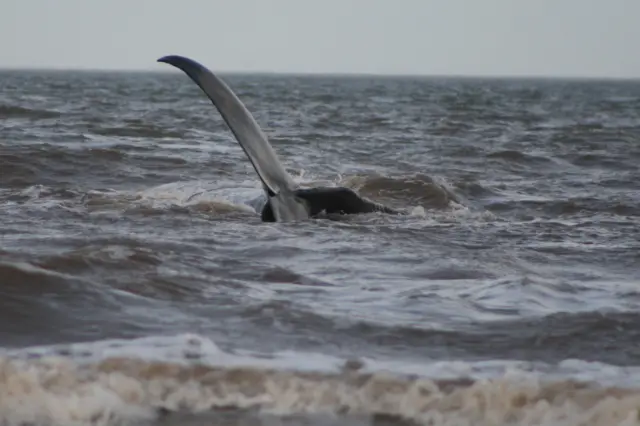'Very sad' to confirm whale's deathpublished at 20:35 GMT 4 February 2016
British Divers Marine Life Rescue (BDMLR) said the whale died shortly after 20:00.
It had been stranded at Hunstanton since this morning.
Stephen Marsh, operations manager at the BDMLR, said: "We're very sad to confirm that the whale has died but it is a bit of a relief because it had been in quite a lot of suffering."
Our live coverage resumes from 08:00 on Friday.

